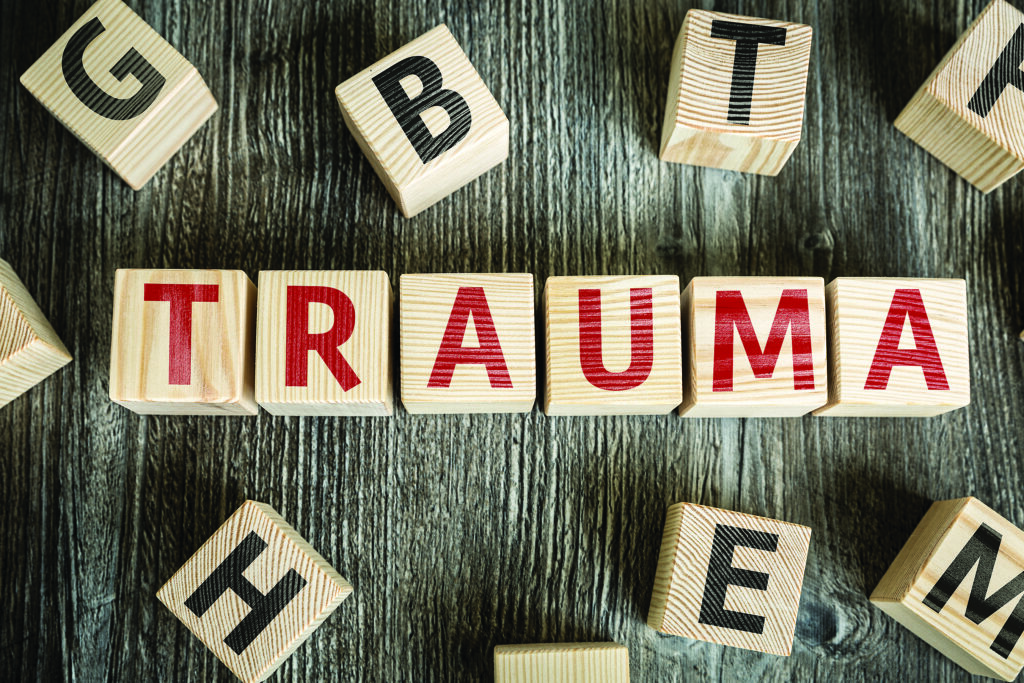
Features
Stop the threat, remove the stigma
November 3, 2023 By Adam A. Meyers
 Photo: gustavofrazao / Adobe Stock
Photo: gustavofrazao / Adobe Stock I was a police officer for 21 years. In April 2016, I was involved in a critical incident when I used deadly force against someone who armed themselves with a hatchet inside a busy department store.
I faced many personal and professional mental health challenges after this incident, and it’s taken me many years to get back on track. The issue of mental health is prominent everywhere in the public safety profession and it is an issue that commands a new perspective.
Public safety professionals who struggle with mental health challenges often feel devalued and fearful because of the negative attitude society and others in their profession may have against them. As a result, public safety professionals struggling with mental health issues may not get the help they need, for fear they’ll be discriminated against or, even worse, terminated.
The public safety profession is a high-stress environment that has been associated with mental health issues. Public safety professionals who openly seek help for anxiety, depression, emotional disorders or post-traumatic stress often face personal or professional criticism, discrimination, and sometimes termination. This shouldn’t deter them from seeking help, but it does. We need to work together to stop the stigma.
Public safety professionals may choose to treat their mental health issues with poor coping strategies, such as excessive consumption of alcohol, drug abuse, casual sex and other risky behaviour. These strategies are self-destructive and tend to cause more stress, anxiety and depression. These strategies may also become criminal.
As a disclaimer, the following are examples of my poor coping strategies, and they may be triggering to those of you who have coped in similar ways.
One of my many coping strategies was to abuse alcohol. Prior to my critical incident I collected wine and enjoyed a glass every now and then. However, after the incident I began abusing liquor, mainly whiskey and the cheapest vodka I could get my hands on. I would consume them straight from their bottles, on the rocks, or I’d create my own cocktails by combining over the counter liquid sleeping or allergy medicines. There were times that I would mix in whatever leftover prescription medicines I had in the medicine cabinet, and it didn’t matter if they were prescribed to me or someone else.
I was on a prescribed anti-depressant while I was abusing alcohol. The label on this medication specially stated, “Do not drink alcoholic beverages while taking this medication.” This didn’t deter me. I wanted an escape from my emotional pain. Abusing alcohol may have been a quick fix, but it ultimately caused me even more stress, anxiety and depression.
The public safety profession is a high-stress environment that has been associated with mental health issues.
Another way I dangerously coped was drinking and driving. Prior to attending any type of social event, I would consume alcohol. I would travel to a nearby liquor store and purchase many small bottles, and I would immediately consume the alcohol in my vehicle prior to travelling to my destination. I would rationalize that it would take about 30 minutes for me to feel the effects of the alcohol, and by the time I was impaired I would’ve arrived at my destination. I was fortunate that I wasn’t arrested by my peers for drinking and driving. I was even more fortunate that I didn’t kill someone.
I put my duty weapon to my head at least a dozen times. Sometimes I even placed the barrel in my mouth. I would always remove the magazine, but for those of you who are not familiar with a variety of duty weapons, if you don’t rack the slide and remove the round from the chamber (barrel) it will still discharge a round. I very easily could have accidentally killed myself. My rationalization was that I simply wanted to hear and feel the metallic click of the trigger being pulled while the barrel of the gun was resting against my right temple. I still don’t truly understand why I did this and sometimes wonder how many times it happened while I was blacked out from excessively consuming alcohol. I’m lucky to be alive.
To overcome the mental health stigma in the public safety profession it is important that those public safety professionals who suffer from mental health issues learn to understand, accept and determine what is needed to treat it. It’s time to become a part of the solution and work with those suffering to make mental health issues stigma free.
Public safety leaders must take a helpful approach when anyone in their command is struggling from mental health issues. Leaders should establish peer support groups and actively participate in them. Leaders, the question is, are you a part of the problem or the solution?
Public safety professionals need to be able to trust the leaders and colleagues of their departments to recognize the obstacles and stigmas associated with mental health. They need to feel comfortable and confident that, if they are involved in a critical incident and later struggle with mental health issues from the incident, help will be available with no strings attached.
Remember, mental illness is a medical disorder and not a character flaw or a sign of personal or professional weakness.
Adam A. Meyers began his law enforcement career in 2001 after serving as an active-duty United States Army Military Policeman. Prior to and during his law enforcement career, Meyers spent 10 years working for hospitals with behavioural health units.
Print this page